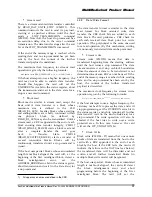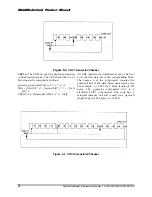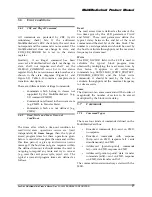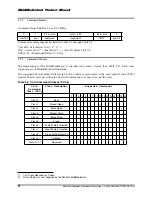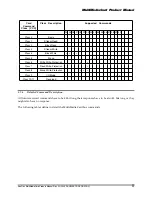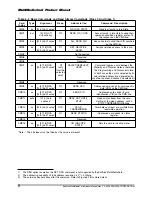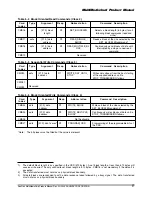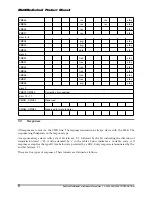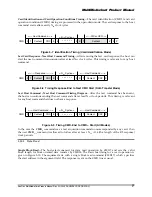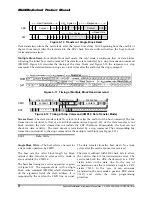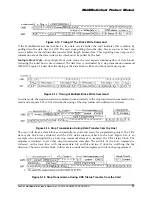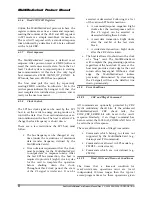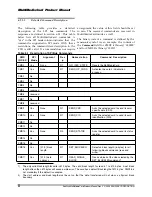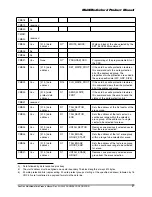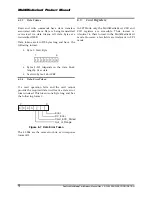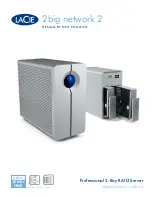
MultiMediaCard Product Manual
SanDisk MultiMediaCard Product Manual Rev. 2 © 2000 SANDISK CORPORATION
57
Card Identification and Card Operation Conditions Timing
—The card identification (CMD2) and card
operation conditions (CMD1) timing are processed in the open-drain mode. The card response to the host
command starts after exactly N
ID
clock cycles.
<---- Host Command ---->
<-N
ID
Cycles->
<---- CID or OCR --->
CMD
S T
Content
CRC
E Z
* * * * * *
Z
S T
Content
Z
Z
Z
Figure 5-7 Identification Timing (Card Identification Mode)
Last Card Response - Next Host Command Timing
—After receiving the last card response, the host can
start the next command transmission after at least N
RC
clock cycles. This timing is relevant for any host
command.
<-------- Response -------->
<-N
RC
Cycles ->
<---- Host Command ----->
CMD
S T
Content
CRC
E Z
* * * * * *
Z
S T
Content
CRC
E
Figure 5-8 Timing Response End to Next CMD Start (Data Transfer Mode)
Last Host Command - Next Host Command Timing Diagram
—After the last command has been sent,
the host can continue sending the next command after at least N
CC
clock periods. This timing is relevant
for any host command that does not have a response.
<----- Host Command ---->
<-N
CC
Cycles ->
<---- Host Command ----->
CMD
S T
Content
CRC
E Z
* * * * * *
Z
S T
Content
CRC
E
Figure 5-9 Timing CMD
n
End to CMD
n+1
Start (All Modes)
In the case the
CMD
n
command was a last acquisition command no more responded by any card, than
the next
CMD
n+1
command is allowed to follow after at least N
CC
+136 (the length of the R2 response)
clock periods.
5.10.2 Data Read
Single Block Read
—The host selects one card for data read operation by CMD7, and sets the valid
block length for block oriented data transfer by CMD16. The basic bus timing for a read operation is
given in Figure 5-10. The sequence starts with a single block read command (CMD17) which specifies
the start address in the argument field. The response is sent on the CMD line as usual.

